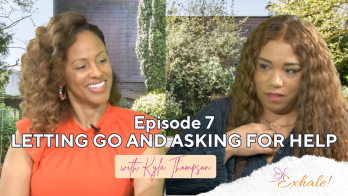- Cheating. Being unfaithful is the number one way to end a relationship. If you want to see someone else, be responsible enough to end your relationship first. Anything else is just being dishonest and cowardly.
- Hanging on to Your Ex. While it’s very important to remember your past mistakes, it’s also important to move on. If you’re still hung up on your ex, perhaps it’s too early to start a new relationship. Even when you think you have no feelings left, if you’re stuck in a pattern of bringing up your ex all the time when you talk with your new partner, you should do some serious thinking about where you’ve been and where you’re heading. Your current partner deserves your full attention. It’s only fair.
- Rushing Things. Relationships develop at their own pace. Some move quickly, others move slowly and steadily. If you push your partner too much, you risk pushing them away. Two prime examples of this are the timing of physical intimacy and saying “I love you.” Both of these things are best when they happen naturally. You’ll both know when the time is right and the relationship won’t be strained.
- Being Ruled by Jealousy. Often feelings of intense jealousy are caused by past relationships. If your partner is open and honest, you shouldn’t feel threatened by incidental contact with someone else. Conversation and interaction is normal. Trust is also important. If you become jealous with your partner without real cause, it can seriously harm your relationship.
- Focusing too Much on the Future. When relationships are new, it’s not the time to dwell too much on the future. Live for the day. The flush of excitement of a new relationship only happens once. Instead of worrying about what’s coming next, enjoy what you have now. Often when one partner is too concerned about the future, the other partner is scared away thinking that they are too serious. Again, live for the moment and enjoy where you are.
- Failure to Balance Friendships With the Relationship. It’s important for each of you to have friends. People often take things very personally when someone talks badly about a friend. Because of these two things, it’s critical to allow your partner time with and for their friends while avoiding talking badly about them. No one is perfect – most of our friends have quirks. Just remember that your friends can be a little strange, too. Finally, don’t feel threatened when your partner wants to do something with their friends.
- Failure to Communicate. Open honest communication is one of the most important things in a healthy relationship. When you keep secrets or even feel too embarrassed to discuss your thoughts, it can build walls between you and your partner. Yes, there is a risk that your feelings or thoughts might end up causing problems in the relationship. However, if there’s a break-up because you’re not compatible, that’s OK. In fact it’s far better to find that out than to pretend you’re something you’re not.
- Forcing your Partner to Change. This is the flip-side of #7. If you can’t accept who your partner is, you probably should find someone else. When you force your partner to change, there is often resentment and the changes rarely last. Even when a partner has a real problem, we can’t “fix” them. We can encourage, but if they don’t commit to the change on their own, it just won’t happen.
- Blaming Your Partner. A relationship takes two people. So do relationship problems. It can be very difficult and often painful to admit our part in relationship problems, but an honest look at our actions is critical. If you expect your partner to face the blame for a problem all alone, don’t be surprised when they don’t want to do anything else with your either.
- Staying After the Feeling is Gone. If you’re just going through the motions in a relationship, your partner knows it. If the relationship is worth saving, you both need to talk and find a way to reignite the spark If not, you should be honest enough to admit that the relationship is over. Often we’re stuck in these ruts because the uncomfortable “known” seems better than the scary “unknown.” In reality, a flat relationship will not last, and will often lead to serious conflict.















